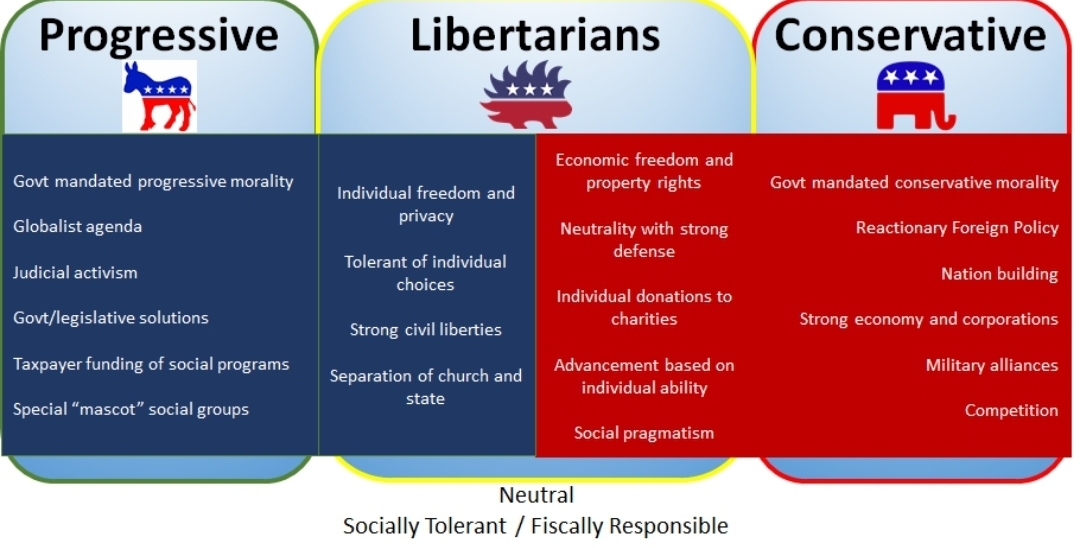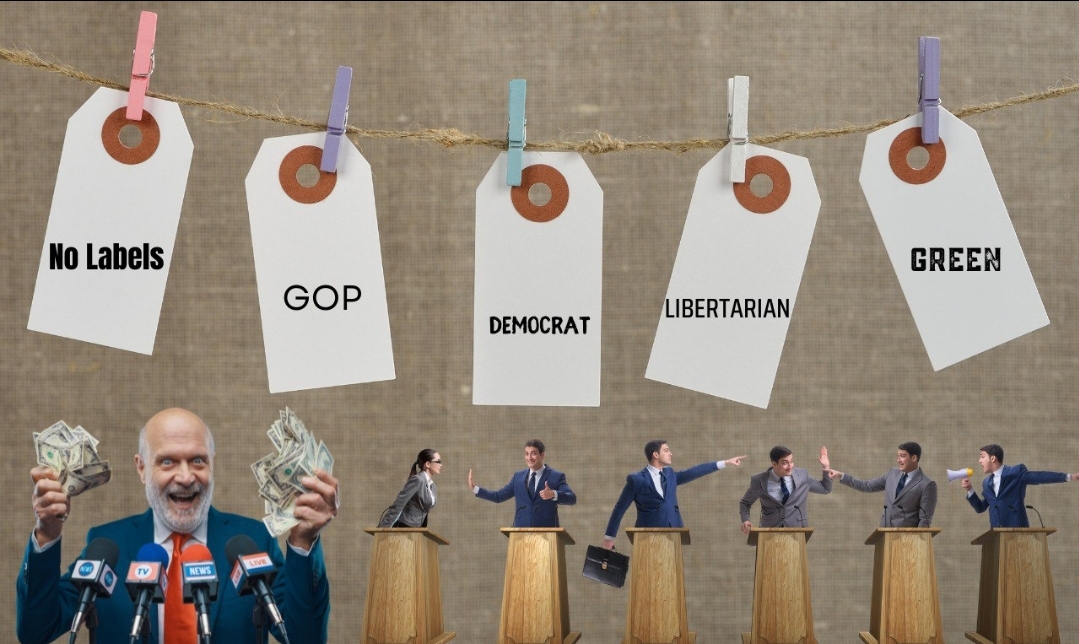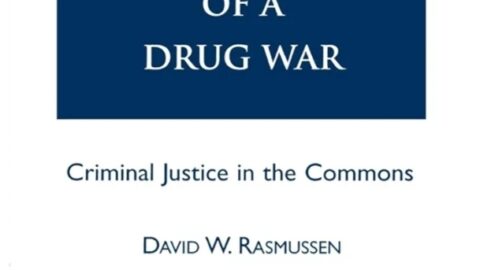The world is filled with daily conflicts between two parties. These conflicts happen between husband and wife, parent and child, employee and boss, and schools and other places in the community, including the political arena.
Conflict is a constant in the changing world. We can never be aware of this, only in our world.
It is a win when conflicts can be solved between the two parties. These two parties can also involve another third person to help solve the problem. If a third party is involved in the conflict, it potentially shows that one or both parties have internal self-control by being responsible and looking for the bigger picture.
It is a loss when we must call the police, government, and state to solve the problem. Their approach is more harsh and has more problematic consequences.
When a government agent (police officer) is called to respond to a conflict, it indicates that the two parties couldn’t resolve the issue by cooperating to devise a win-win solution. It shows that one or both parties couldn’t discipline themselves and allowed emotions, biases, and opinions to take over and get the best of them.
They now rely on the government to solve and dictate their problems, which could end in nothing, fines, arrest, or even death.

We have layers and levels of problem-solving ability in hopes that we, as individuals, and those we deal with will score high on being mature.
“People display maturity in patience, perseverance, decision-making, dependability, self-control, and humility; that is, the ability to admit simply “I was wrong.”” (1)
In a mentally healthy society, we try to persuade and get the individual to Stage 3, where they have internal self-control, discipline, and maturity by being proactive and taking the initiative, caring for and understanding relationships, community, culture, and healthy boundaries and institutions.
In Stage 3, they are prone to solving their problems by critically thinking and working to negotiate, persuade, or compromise to create a win-win solution for individuals or groups involved.
Solving problems and teaching others to solve them is the ultimate mark of a mature man or woman.

In life, the first level is the self (adolescents and adults). If they can’t solve the issue or are immature, we have peers who can hopefully help de-escalate the situation. If they can’t solve it, we go to a group of people, like family and other groups of people from hobbies, jobs, and churches, to help mediate and devise a solution.
If that filtering system cannot solve the issue, authorities and agents from the government (police) and state are called in to control and handle the situation.
If we reach the Authority Level, it shows a failure in internal control on one or both parties (these models can be used in a personal, community, state, national, or global setting. In essence, micro and macro levels).
When authority intervenes, we fail to value, teach, and live a mature and disciplined life.
Self-discipline is the most effective and highest level of humanity, discipline, and maturity to achieve mental health for an individual, family, community, country, and society.
Self-discipline is considered the highest level of approach in conflicts between two or more parties. With internal control, one handles one’s responsibilities and duties without being told and is accountable for one’s mistakes and successes.

As we make mistakes and take responsibility and accountability, we can learn from them and grow by evolving into better people and nations by improving ourselves throughout our lives.
If we can do this individually and more people do it collectively, we raise the bar for our communities in the present and future generations. We do this by teaching and modeling our self-discipline.

As we compare the philosophies of the different ideologies, I would ask you to consider what political label, language, and concepts best align with self-control, personal responsibilities, duties, maturity, and fairness and justice while strengthening institutions to hold government officials accountable across the board as we respect and uphold the Rule of Law in protecting Natural Law.

As we attempt to identify ourselves as individuals on the spectrum, I would also ask you to consider where our government is on the spectrum of control and power. The more control individuals have over themselves through self-discipline and self-regulation, the less need and control the government has over society, as individuals and communities do not need government.
The opposite is true: the less self-disciplined an individual, family, and community are, the more they need external control in the form of government. It all starts and ends with the individual and how they operate within their families, groups, communities, and the nation. Not taking responsibility can allow people to have a victim mindset and appear immature in their life choices.

STATISTS
A statist advocates for a strong and centralized state or government that exercises significant control over economic, social, and political affairs. Statists typically believe in expanding state power and intervention in various aspects of society to achieve specific goals, such as promoting social welfare, economic equality, or national security.

They may support policies such as government regulation, welfare programs, industry nationalization, and restrictions on individual freedoms in the name of the common good. The term “statist” is often used in political discourse to describe individuals or ideologies that prioritize the authority and role of the state in governance and policymaking.

PROGRESSIVE
A progressive advocate for social, political, and economic reforms to improve society and address inequality, injustice, and oppression.
Progressives typically support policies that promote equality, social justice, and environmental sustainability.
They may advocate for universal healthcare, higher minimum wages, progressive taxation, environmental protections, civil rights, and social welfare programs. Progressives often prioritize healthcare access, education reform, criminal justice reform, LGBTQ+ rights, and climate change mitigation.
The term “progressive” describes individuals, organizations, or political movements that seek to advance these goals through activism, advocacy, and political action.

Progressives advocate using government institutions and policies to achieve social and political change. This can involve implementing regulations, enacting laws, and utilizing public programs to address inequality, discrimination, and environmental concerns.
The approach emphasizes collective action and the role of government in promoting social justice and equality.
CONSERVATIVE
A conservative generally adheres to traditional values, institutions, and practices and is cautious about embracing rapid change or reform.
Conservatives prioritize limited government, individual liberty, free markets, and traditional social values. They often advocate for policies emphasizing personal responsibility, fiscal conservatism, and a robust national defense.
Conservatives may support lower taxes, reduced government regulation, free trade, and a strong military. They often emphasize the importance of family, community, and religious faith in maintaining social order and stability. On social issues, conservatives tend to favor traditional views on topics such as marriage, abortion, and gun rights.
The term “conservative” describes individuals, organizations, or political movements that adhere to these principles and seek to uphold or preserve existing social, political, and economic structures.

LIBERAL
A liberal generally advocates for social, political, and economic reforms to promote equality, justice, and individual freedom. Liberals support policies that expand civil liberties, protect human rights, and address social and economic inequalities. They often prioritize healthcare access, education reform, environmental protection, LGBTQ+ rights, and criminal justice reform.
Liberalism emphasizes the importance of government intervention in addressing social problems and promoting the common good. Liberals may support universal healthcare, progressive taxation, environmental regulations, social welfare programs, and affirmative action. They tend to advocate for policies that expand opportunities for marginalized groups and promote social justice.
On social issues, liberals tend to support progressive views on topics such as marriage equality, reproductive rights, and gun control. They often prioritize individual autonomy and diversity and are open to embracing change and innovation.
The term “liberal” describes individuals, organizations, or political movements that adhere to these principles and seek to advance progressive goals through activism, political action, and the use of government to coerce or force the issue.
Liberals seek to use government institutions and policies to promote social change, typically focusing on individual rights, civil liberties, and equality. They support government intervention in healthcare, education, and economic regulation to address social injustices and promote opportunity for all citizens. Liberals often advocate for progressive taxation, social welfare programs, and policies aimed at protecting the rights of marginalized groups.

LIBERTARIAN
A libertarian advocates for individual freedom, limited government, and personal responsibility across social and economic spheres. Libertarians prioritize individual liberty, voluntary cooperation, and free markets. Here are some key beliefs of libertarianism:

Limited Government: Libertarians advocate for a minimal state limited in its powers and responsibilities. They believe that government should be restricted to protecting individual rights, maintaining law and order, and providing essential public goods and services, such as national defense and the justice system.
Individual Freedom: Libertarians believe in maximizing individual freedom and autonomy. They argue that individuals should have the right to live their lives as they choose as long as they do not infringe upon the rights of others.

Free Markets: Libertarians support free-market capitalism as the most efficient and equitable economic system. They believe that voluntary exchange, private property rights, and competition lead to economic prosperity and innovation while also promoting individual initiative while also promoting individual and self-reliance.
Civil Liberties: Libertarians prioritize civil liberties and individual rights, including freedom of speech, association, and privacy rights. They oppose government intrusion into personal matters, such as surveillance or censorship, and advocate for protecting individual privacy and autonomy.
Non-Aggression Principle: Libertarians adhere to the non-aggression principle, which holds that individuals should not initiate force or coercion against others except in self-defense. They believe that interactions between individuals should be voluntary and consensual, without the use of force or fraud.
While libertarians share some common principles with conservatives (such as limited government and free markets) and progressives (such as civil liberties and individual autonomy), they often emphasize personal freedom and skepticism of government authority in social and economic affairs.

DEMOCRAT
A Democrat is a member or supporter of the Democratic Party, one of the two major political parties in the United States. The Democratic Party is generally associated with progressive or liberal positions on social and economic issues. Democrats typically advocate for policies such as:
Social Welfare: Democrats often support government intervention to address social inequality, poverty, healthcare access, and education reform. They may advocate for programs like Medicaid, Social Security, and the Affordable Care Act (Obamacare).
Economic Regulation: Democrats may favor government regulation of the economy to protect consumers, workers’ rights, and the environment. They may support measures such as raising the minimum wage, expanding labor rights, and implementing environmental regulations.
Civil Rights and Social Justice: Democrats typically support civil and social justice initiatives, including LGBTQ+ rights, racial equality, women’s rights, and criminal justice reform. They may advocate for marriage equality, voting rights protections, and police reform.
Environmental Protection: Democrats often prioritize environmental conservation and climate change mitigation efforts. They may support policies such as renewable energy development, carbon emissions reductions, and conservation efforts to protect natural habitats.
International Cooperation: Democrats generally advocate for a multilateral approach to foreign policy, emphasizing diplomacy, international cooperation, and engagement with global institutions. They may support initiatives such as arms control agreements, humanitarian aid, and peacekeeping efforts.
It’s important to note that the Democratic Party is a broad coalition with diverse viewpoints, and individual Democrats may hold various beliefs on various issues.
The term “Democrat” can refer to elected officials who belong to the Democratic Party and voters who support its policies and candidates.

REPUBLICANS
A Republican is a member or supporter of the Republican Party, one of the two major political parties in the United States.
The Republican Party is generally associated with conservative positions on social and economic issues. Republicans typically advocate for policies such as:
Limited Government: Republicans often support limited government intervention in the economy and individual lives. They may advocate for lower taxes, reduced government spending, and deregulation to promote economic growth and individual freedom.
Free Market Capitalism: Republicans generally support free-market capitalism and oppose excessive government regulation of businesses. They may advocate for policies such as lower corporate taxes, fewer restrictions on trade, and privatization of specific industries.
Traditional Values: Republicans often emphasize traditional social values and cultural conservatism. They may support policies such as restrictions on abortion, opposition to same-sex marriage, and promotion of religious freedom.
Strong National Defense: Republicans prioritize a strong national defense and assertive foreign policy. They may advocate for increased military spending, robust defense alliances, and assertive action to combat terrorism and protect national security interests.
Law and Order: Republicans generally support tough-on-crime policies and law enforcement. They may advocate for measures such as mandatory minimum sentences, increased funding for police departments, and strict enforcement of immigration laws.
Individual Responsibility: Republicans often emphasize personal responsibility and self-reliance. They may advocate for policies encouraging individuals to take responsibility for their well-being and economic success rather than relying on government assistance.
It’s important to note that the Republican Party is a broad coalition with diverse viewpoints, and individual Republicans may hold various beliefs on various issues. The term “Republican” can refer to elected officials who belong to the Republican Party and voters who support its policies and candidates.

THE CONSITUTION PARTY
The Constitution Party is a conservative political party in the United States that advocates for strict adherence to the U.S. Constitution, limited government, and traditional moral values. The party was founded in 1992 as the U.S. Taxpayers’ Party and later changed its name to the Constitution Party in 1999.
Key principles of the Constitution Party include:
Constitutionalism: The party emphasizes strict interpretation and adherence to the U.S. Constitution and the principles of federalism and limited government outlined in the Constitution.

Limited Government: The Constitution Party advocates for reducing the size and scope of the federal government and returning power to state and local governments. It opposes government overreach and excessive regulation.
Traditional Values: The party promotes traditional moral and social values, including opposition to abortion, same-sex marriage, and other policies it views as contrary to its conservative Christian principles.
National Sovereignty: The Constitution Party prioritizes national sovereignty and opposes international agreements or organizations that infringe on U.S. sovereignty, such as the United Nations or international trade agreements.
Economic Conservatism: The party advocates for fiscal responsibility, lower taxes, and free-market principles. It opposes deficit spending, government bailouts, and excessive government intervention in the economy.
The Constitution Party has fielded candidates for various federal, state, and local political offices, although it has not achieved significant electoral success compared to the major parties. It typically attracts support from conservative voters dissatisfied with the Republican Party’s perceived drift from conservative principles.
CORPORATISM
Corporatism is a sociopolitical and economic system in which society is organized into corporate groups, such as agricultural, labor, military, or scientific associations, that are integrated into the government structure. These groups, also known as “corporations” (not to be confused with business corporations), work under state oversight to manage economic and social policy.

State Corporatism:
Government Control: In state corporatism, the government exerts significant control over the corporate groups.
- The state often creates and oversees these groups to align them with national policies and objectives.
Authoritarian Contexts: This type is common in authoritarian regimes where the state seeks to control various aspects of society and the economy to maintain order and implement its agenda.
- Example: Fascist Italy under Mussolini employed state corporatism by organizing the economy into syndicates or corporations that represented different sectors of the economy, each controlled and directed by the state.

Characteristics of Corporatism:
- Integration of Interest Groups: Different sectors of society, such as labor, business, and agriculture, are integrated into the policy-making process.
- Regulation and Coordination: The government plays a significant role in regulating and coordinating the activities of these corporate groups.
- Focus on Harmony: The system aims to reduce class conflict and promote social harmony by ensuring that different interest groups have a voice in decision-making.
- Economic Management: Corporatist systems often involve extensive planning and coordination of the economy to ensure stability and growth.
Advantages and Disadvantages
Advantages: Stability and Order: By integrating various interest groups into the policy-making process, corporatism can create a stable and orderly society.
- Reduced Class Conflict: It aims to mediate conflicts between labor and capital, reducing strikes and industrial disputes.
- Coordinated Economic Planning: It allows for coordinated economic planning and regulation, which can lead to more efficient and equitable outcomes.

Disadvantages:
Potential for Corruption: The close relationship between government and corporate groups can lead to corruption and favoritism.
Bureaucracy and Inefficiency: The system can become overly bureaucratic and slow, hindering economic dynamism and innovation.
Suppression of Individual Rights: In more authoritarian forms, corporatism can suppress individual rights and freedoms in favor of collective control and state interests.
Conclusion:
Corporatism represents an approach to organizing society and the economy that seeks to balance the interests of different groups through integration and cooperation. While it can provide stability and reduce conflict, it poses risks of corruption, bureaucracy, and potential suppression of individual freedoms, particularly in its more authoritarian forms. Understanding corporatism helps analyze how political systems manage economic and social policies to achieve their goals.

CLASSICAL LIBERALISM
Classical liberalism is a political ideology that emphasizes individual freedom, limited government, and free markets. It emerged in the 17th and 18th centuries as a response to the absolute monarchy and mercantilist economic policies prevalent in Europe.
Key principles of classical liberalism include:
Individual Liberty: Classical liberals believe in the primacy of individual freedom and autonomy. They argue that individuals should have the right to live as they choose, free from excessive government interference or coercion.
Limited Government: Classical liberals advocate for a minimal state limited in its powers and responsibilities. They believe that government should primarily focus on protecting individual rights, maintaining law and order, and providing essential public goods and services.
Rule of Law: Classical liberals emphasize the importance of the rule of law, equality before the law, and protection of property rights. They argue that a legal framework based on clear and impartial rules is essential for ensuring individual liberty and preventing arbitrary exercise of government power.
Free Markets: Classical liberals support free-market capitalism as the most efficient and equitable economic system. They believe that voluntary exchange, private property rights, and competition lead to economic prosperity and innovation while promoting individual initiative and self-reliance.
Tolerance and Pluralism: Classical liberals value tolerance, diversity, and pluralism and advocate for a society in which individuals are free to pursue their values, beliefs, and lifestyles without interference from the state or other individuals as long as they don’t infringe on others’ rights.
Classical liberalism has significantly influenced modern political thought and shaped the development of liberal democracies worldwide.
In closing, by reading and understanding the ideologies of the different political parties, we can get a range of where we might want to improve and take a second look at where we are and where we want to be as individuals and as a society. Hopefully, by reading the different concepts, we can see where our government is 0-100, from anarchy to tyranny. As we can see where our government is, we can focus on making the necessary changes for ourselves and, hopefully, our nation.
In an upcoming article titled “We Need to Rethink the Political Labels & Unite Under the Constitutional Protection & Bill of Rights,” we hope to help move our nation from tyranny to a Constitutional Republic.

We can only do so as more and more people understand where we are at in the present moment and what we need to do to return to our Original Intent of the Founding Fathers in restoring forgotten principles.







